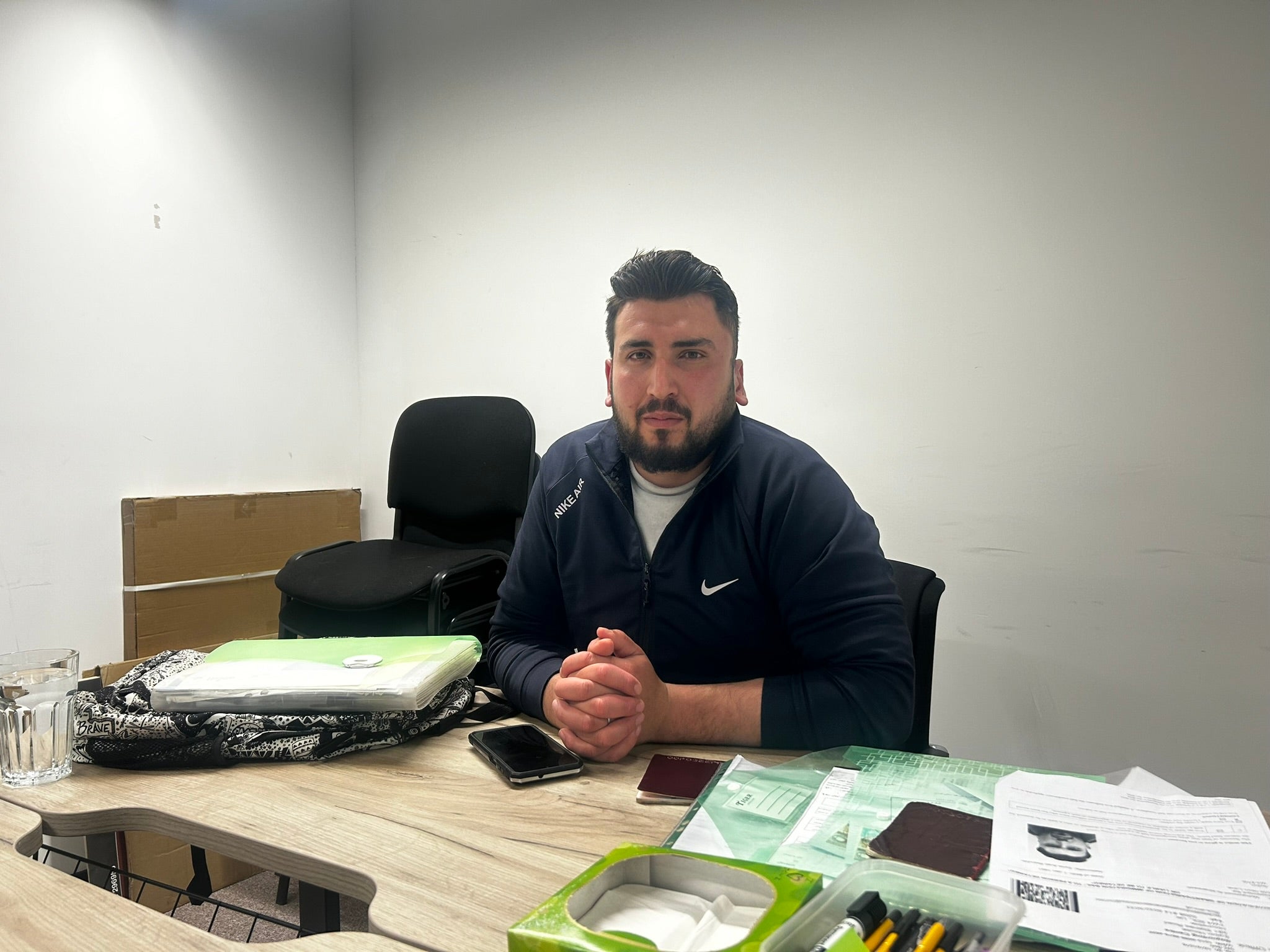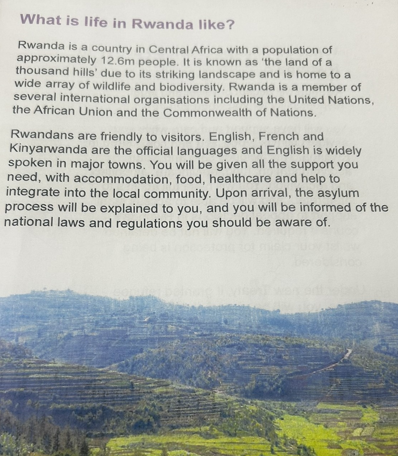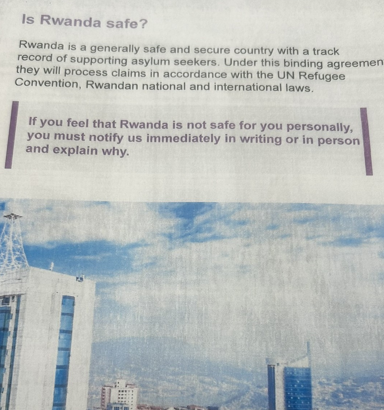A Syrian refugee due to be deported from the UK on one of the first flights to Rwanda has spoken about the constant nightmares, anxiety and despair he experienced during 25 days in detention.
Mohammad Al Kharewsh, 25, said he kept questioning why he was among the first chosen and became increasingly depressed during his time in Gatwick detention centre.
His arrival in the UK in 2022 had seen him reunited with his brother, who was granted asylum in the UK as a minor, and the prospect of being separated again was “extremely intimidating”, he said.
Mohammad was one of more than 100 asylum seekers rounded up by the Home Office in May ahead of planned deportation flights to Rwanda.
The same day the Home Office released a video of asylum seekers being rounded up for deportation in a move Labour described as “a desperate attempt by the Tories to look tough”.
Many have now been released on bail after Rishi Sunak said that flights will only go ahead if he wins the 4 July election. Labour have pledged to scrap the £290 million scheme if they get into power.
Speaking at a charity’s offices following his release on bail, Mohammad said he felt compelled to flee Syria in 2022 due to the pressure of joining either President Assad’s army or the resistance forces.
The UK used to have a dedicated resettlement route for those fleeing the Syrian war, but this ended in 2021, so there was no safe route to use.

Anyone who came to the UK irregularly after 1 January 2022, such as Mohammad who arrived via small boat, is in scope for removal to Rwanda under Mr Sunak’s scheme.
Mohammad, who has been living with his brother in Acton, was detained during a routine reporting visit to immigration at around 11am on 1st May.
He was taken to Gatwick and put in a room with another Syrian refugee, who was suffering from mental health problems.
Speaking about his time in the immigration removal centre near Crawley, he said: “The environment was overwhelming and I struggled with constant nightmares and insomnia. After surviving a challenging journey, the reality of my situation was hard to grasp. I kept questioning why I was being detained for deportation.
“In the rooms, I was housed with another inmate in a shared room. Beds were provided, but the environment itself was far from comfortable. There was a shopping area and a gym available for us but I was too preoccupied with the constant thought of deportation and my low mood to make use of these facilities.
“We were provided with food, but I only ate enough to survive. My mind was preoccupied with the hopes of a better future. And that hope seemed to slip further away each day. The looming threat of deportation hung over me adding to my stress and anxiety and the detention centre was incredibly difficult.”
Speaking about his decision to flee his home, he said: “Leaving Syria was a difficult decision but I had to make it for the safety of myself and my family. The situation there has become unbearable, with the constant fear of violence and instability.
“The pressure to join either the Syrian army or fight with the opposition made things worse. I made the choice to prioritise my family’s safety over conflict and my desire was to live in peace away from the chaos of war.”
Though his wife and young child are still living in Syria, he said they were safer now he has left and had not been forced to pick a side in the armed conflict. His hope is that they might be able to one day join him in the UK.

His younger brother was granted asylum in the UK four years ago as a minor and now works in construction. He rents a flat and is supporting Mohammad and a second brother who arrived in the UK a few months ago. Mohammad only found out that his brother was living in the UK when he arrived here and he is anxious they are not separated again.
He said: “I fled war back home in Syria and that war shattered our family. In the UK I managed to reunite with my siblings for the first time. So going through the trauma of displacement again is extremely intimidating. Also relocating to a country like Rwanda – given their history of conflict and violence and having no support network there – would make me more vulnerable.”
Mohammad has been told his asylum claim is inadmissible and the Home Office intends to deport him to Rwanda, but his second brother has yet to hear anything about his asylum claim.
On arriving in detention, he was given a leaflet from border force officials explaining what Rwanda is like. Asylum seekers are told that the country is known as “the land of a thousand hills”, and that Rwandans are friendly to visitors.

A page of the leaflet entitled ‘Is Rwanda safe?’ says that the country is a “generally safe and secure country with a track record of supporting asylum seekers.”
The UK Supreme Court ruled in November last year that the refugee agency UNHCR, should be trusted in their assessment that Rwanda is not a safe country for asylum seekers.
The UNHCR has warned High Court judges only this week that it may have new evidence from 2024 that Rwanda has endangered asylum seekers. The UK parliament passed a law declaring Rwanda to be a safe country this year despite the Supreme Court’s decision.
Mary Atkinson, at charity JCWI, who have supported Mohammad, said: “The Rwanda policy has caused immense mental distress to people who have experienced trauma upon trauma, and is yet another example of the failed ‘deterrence’ approach.
“We must change course now, and provide safe routes and welcome for people making the UK their home.”
The Home Office said they would not provide commentary on detentions or operational activity.

